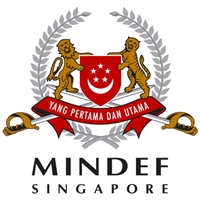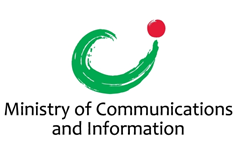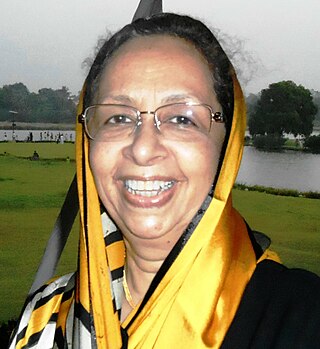
The Government of Brunei is the union government created by the constitution of Brunei where by the Sultan of Brunei is both head of state and head of government. Executive power is exercised by the government. Brunei has a legislative council with 36 appointed members, that only has consultative tasks. Under Brunei's 1959 constitution, His Majesty Hassanal Bolkiah, is the head of state with full executive authority, including emergency powers since 1962. The Sultan's role is enshrined in the national philosophy known as "Melayu Islam Beraja" (MIB), or Malay Islamic Monarchy. The country has been under hypothetical martial law since a rebellion occurred in the early 1960s and was put down by British troops from Singapore. The Seat of the Government is located in Bandar Seri Begawan, Brunei.

The prime minister of Singapore is the head of government of Singapore. The president appoints the prime minister on the advice and consent of the Cabinet of Singapore. The incumbent prime minister is Lawrence Wong, who took office on 15 May 2024.

Islam constitutes the third largest religion in Singapore, with Muslims accounting for approximately 15.6% of the population, as indicated by the 2020 census. Predominantly, Singaporean Muslims are Sunni Muslims adhering to either the Shafi‘i or Hanafi schools of thought. The majority of the Muslim population, about 80%, are ethnic Malays, while 13% are of Indian descent. The remaining fraction comprises local Chinese, Eurasian, and Arab communities, in addition to foreign migrants. Buddhism and Christianity are the two larger religious affiliations in the country.

The Ministry of Defence is a ministry under the Government of Singapore responsible for overseeing the national defence of Singapore.
The Tanglin Police Division is one of the seven land divisions of the Singapore Police Force. Tanglin Division oversees the safety and security of the central region in Singapore. The division's policing jurisdiction covers several areas which include residential estates, schools, hospitals, hotels, embassies, as well as iconic buildings such as the Istana and the Interpol Global Complex for Innovation. The division is also responsible for upholding law and order in popular retail and entertainment districts such as Orchard Road and Clarke Quay.

Singapore's Ministry of Foreign Affairs (MFA) Malay: Kementerian Ehwal Luar Negeri; Chinese: 新加坡外交部; Tamil: வெளியுறவு அமைச்சு) is in charge of the country's foreign relations, as well as handling matters and providing consular assistance related to overseas Singaporean citizens. It was established on 9 August 1965. A ministry for the Government of Singapore, it is also responsible for conducting and managing diplomatic relations between Singapore and other countries and regions.

Yaacob bin Ibrahim is a Singaporean former politician who served as Minister-in-charge of Muslim Affairs between 2002 and 2018, Minister for Community Development, Youth and Sports between 2002 and 2004, Minister for the Environment and Water Resources between 2004 and 2011, Minister for Communications and Information between 2011 and 2018, and Minister-in-charge of Cyber Security between 2015 and 2018. A member of the governing People's Action Party (PAP), he was the Member of Parliament (MP) representing the Kolam Ayer division of Jalan Besar GRC between 1997 and 2020.

The Ministry of Education is a ministry of the Government of Singapore responsible for the formulation and implementation of policies related to the education in Singapore.

The Coordinating Minister for National Security is an appointment in the Cabinet of Singapore, initially introduced in 2003 to cover both the security and defence of Singapore. However, the security and defence portfolios were dropped when the role was redesignated in 2005. The incumbent minister is Teo Chee Hean.
The Ministry of Law is a ministry of the Government of Singapore responsible for the advancement in access to justice, the rule of law, the economy and society through policy, law and services.
Othman bin Wok, often known as Othman Wok, was a Singaporean politician who served as Minister of Social Affairs between 1963 and 1977. After retiring from politics, he was Singapore's Ambassador to Indonesia and served on the boards of the Singapore Tourism Board and Sentosa Development Corporation. For his political, economic and social contributions to the nation building of Singapore, he was awarded the Order of Nila Utama in 1983 by President Devan Nair.

The Ministry of Digital Development and Information is a ministry of the Government of Singapore responsible for overseeing the development of the infocomm technology, media and design sectors, as well as the government's information and public communication policies. It is also responsible for maintaining the national library, national archives and public libraries.

The Ministry of Manpower is a ministry of the Government of Singapore responsible for the formulation and implementation of policies related to the workforce in Singapore.
The Prime Minister's Office is the executive branch of the Government of Singapore responsible for overseeing the other ministries and political matters that are of great importance to the nation, such as tackling corruption and holding elections. It is headed by the prime minister and other appointed ministers. The PMO is located in The Istana, which is also the official residence and office of the President of Singapore.
Freedom of religion in Singapore is a guaranteed constitutionally protected right. Article 15 of the Constitution of Singapore states: "Every person has the right to profess and practise his religion and to propagate it." and allows believers the freedom to assemble and worship without limitation or interference.

Ferial Ismail Ashraff is a Sri Lankan politician. She was the wife of M. H. M. Ashraff, the deceased leader of the Sri Lanka Muslim Congress and the National Unity Alliance. She was the Minister of Housing and Common Amenities under President Chandrika Kumaratunga. She was a representative of Ampara District for the United People's Freedom Alliance in the Parliament of Sri Lanka. She resides in Colombo.

Masagos Zulkifli bin Masagos Mohamad is a Singaporean politician. A member of the governing People's Action Party (PAP), he has been serving as Minister for Social and Family Development and Second Minister for Health since 2020, Minister-in-charge of Muslim Affairs and serves as the Vice Chairman in the party Central Executive Committee (CEC) since 2018 and had been the Member of Parliament (MP) representing the Tampines West division of Tampines GRC since 2006.
The Coordinating Minister for Social Policies was an appointment in the Cabinet of Singapore, initially introduced in 2015 to cover both economic and social policies. However, the economic policy portfolio was dropped when the role was redesignated in 2019. The only person to hold the post, between 2015 and 2023, was Tharman Shanmugaratnam as he announced his intention to run for the 2023 presidential election and his scheduled resignation on 7 July 2023 from all his positions in the government and as a member of the People's Action Party, as the presidency is a non-partisan office.

The Administration of Muslim Law Act is a Singapore statute that pertains to regulation of Muslim religious affairs, establishing the creation of a religious council to offer advice on matters related to the Muslim religion, and the creation of a Syariah Court in Singapore. The act was passed in 1966 and came into force on 1 July 1968.
The Coordinating Minister for Economic Policies is an appointment in the Cabinet of Singapore, initially introduced in 2015 to cover both economic and social policies. However, the social policy portfolio was dropped when the role was redesignated in 2019. The last person that held this portfolio is Heng Swee Keat, stepping down upon the swearing in of Lawrence Wong as the new prime minister in 2024.















